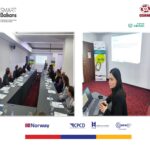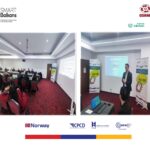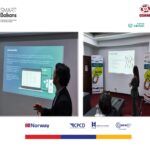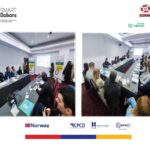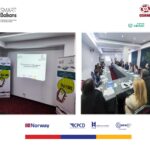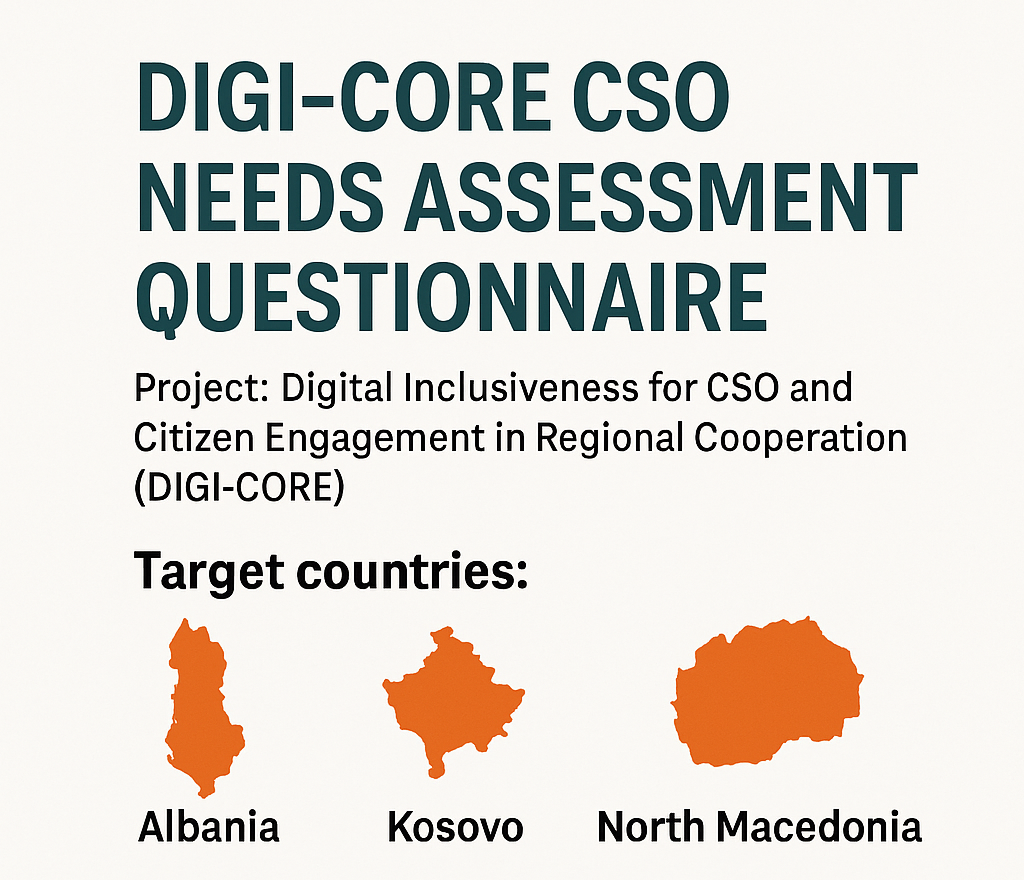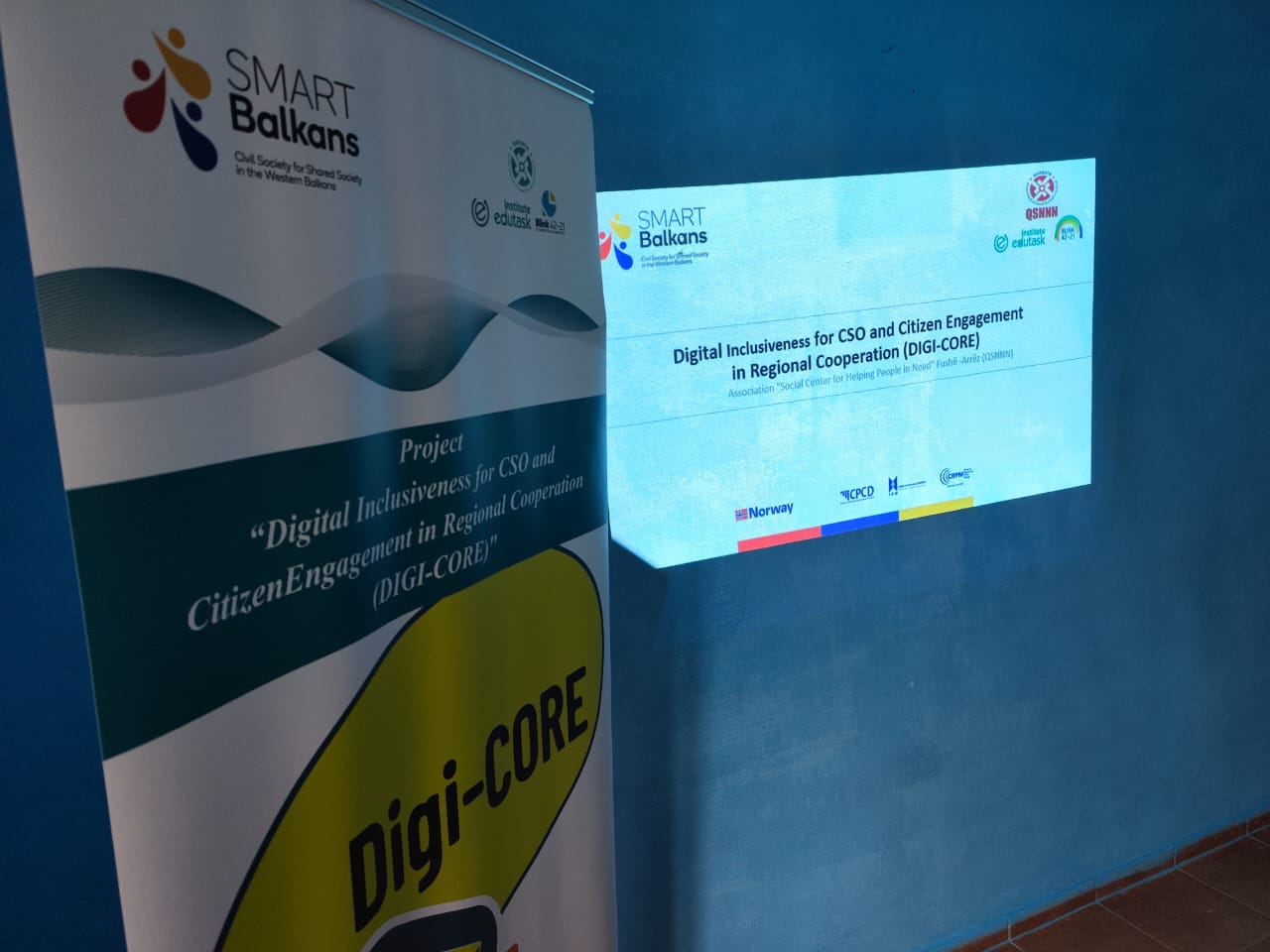
Bridging the Digital Divide in the Western Balkans through the “Regional Collaboration Workshop” held on March 5, 2025, in Pristina
In an era where digital transformation shapes the way societies interact with public institutions, ensuring digital inclusiveness remains a pressing challenge. The DIGI-CORE initiative seeks to bridge this gap by assessing and enhancing the digital capabilities of disadvantaged communities, including illiterate rural women, the digitally illiterate population, and elderly citizens in Albania, Kosovo, and North Macedonia. By empowering these groups with digital tools and knowledge, the project aims to foster greater civic engagement and improve accessibility to public services.
As part of this effort, a “Regional Collaboration Workshop” was held on March 5, 2025, in Pristina, Kosovo. The event gathered high-level representatives from the Municipality of Fushë-Arrëz, including Mayor H. Curri, Chairman of the Municipal Council N. Bardhoku, and Deputy Mayor M. Qafa. Additionally, civil society organizations (CSOs) and businesses from Albania, Kosovo, and North Macedonia participated, reflecting the broad regional interest in addressing digital inclusion.
The workshop served as a platform to present the findings from questionnaires and focus groups conducted by Edutask across the three countries. These assessments provided crucial insights into the digital needs and existing capabilities of marginalized groups, highlighting the barriers that prevent them from fully engaging with public institutions. The data revealed significant disparities in digital access and literacy, reinforcing the need for targeted interventions.
A key highlight of the event was the presentation of the “mKomuniteti” platform by Blink 42-21, which is currently in its testing phase. This digital tool is designed to enhance communication and participation within communities, offering an accessible medium for citizens to engage with local authorities and civil society organizations. By facilitating interactions between public institutions and digitally marginalized communities, “mKomuniteti” has the potential to become a cornerstone for regional digital inclusiveness.
Following the presentation, extensive discussions took place among the attendees. Participants explored strategies to integrate digital tools into community engagement efforts, emphasizing the importance of capacity-building initiatives and public-private partnerships. The discussions also touched on the role of local governments in promoting digital literacy programs, particularly for vulnerable populations.
As the project progresses, its impact will be measured not only by the adoption of digital tools but also by the extent to which disadvantaged groups can use these technologies to engage with their communities. The insights gained from the ongoing assessments and workshops will serve as a foundation for future initiatives, ensuring that digital inclusiveness remains a priority in regional cooperation efforts.


